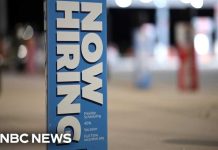
A new high school policy in Queens forces students to handwrite essays in class to combat AI cheating—igniting fierce debate over academic integrity, fairness, and the future of education.
Story Snapshot
- A top-performing Queens high school now requires all summer essays to be handwritten in class, targeting AI-assisted cheating.
- Teachers defend the move as vital for preserving academic integrity, while students argue it is unfair and punitive.
- This policy reflects national tensions as schools grapple with how to adapt assessments in the age of generative AI like ChatGPT.
- Expert opinion is split: some see handwritten essays as essential safeguards, others warn such measures could disadvantage certain students and fail to teach responsible AI use.
Queens High School Responds to AI Cheating with Handwriting Mandate
In September 2024, administrators at a leading public high school in Queens, New York, enforced a controversial policy: all students must handwrite their summer essays in class, eliminating the option to submit digital or typed assignments. This rapid shift comes after a surge in AI-generated student work during the previous academic year, especially through platforms like ChatGPT, which have been widely adopted by students nationwide for essay writing and homework completion. School officials argue the policy is necessary to ensure genuine student work and maintain the school’s longstanding reputation for academic excellence.
The decision has triggered significant backlash among students and parents, particularly as the school serves a diverse, high-achieving population for whom any policy changes carry weight. Many students claim that being forced to handwrite essays in class unfairly punishes the entire student body for the actions of a minority who have misused AI tools. Parent forums and social media erupted with debate throughout the summer, with critics labeling the policy as outdated and unnecessarily punitive. Supporters, however, believe that drastic measures are justified to restore accountability and traditional standards in an era of rampant digital shortcuts.
Academic Integrity Versus Modern Technology: A National Dilemma
Across the United States, the rise of generative AI since late 2022 has transformed how students approach written assignments, raising alarms about authentic learning and the erosion of critical thinking skills. Educators have observed a notable decline in original writing, prompting schools to revisit traditional assessment strategies. As digital learning became the norm, in-class handwritten essays were largely phased out, but concerns over AI-facilitated cheating are now prompting a return to these methods. The Queens high school’s policy is among the most sweeping, emblematic of a broader struggle in American education to balance technological advancement with time-tested academic values.
Efforts to integrate AI responsibly into classrooms remain limited. Some schools have experimented with AI-detection software, but results are mixed—algorithms often fail to conclusively identify AI-generated text or inadvertently penalize innocent students. In Queens, administrators opted for the more definitive approach of in-person handwriting, aiming to remove any ambiguity about student authorship. However, this solution has its own drawbacks, potentially disadvantaging students who struggle with handwriting or have disabilities, and raising questions about equity and access.
Stakeholder Perspectives: Teachers, Parents, and Students
Teachers and administrators at the school maintain that their primary goal is to safeguard academic integrity and foster genuine critical thinking. For them, the handwritten essay requirement is a necessary safeguard against an AI-driven decline in student effort and originality. Conversely, many students, especially those in advanced programs, see the policy as a collective punishment that overlooks individual responsibility. Parents are divided—while some back the strict stance as essential for upholding standards, others fear it places undue stress on their children and fails to prepare them for a future where AI is ubiquitous.
District officials have monitored the situation closely, as ongoing student protests and petitions have drawn media attention and heightened scrutiny. The school has not reversed its policy but is reportedly considering accommodations, such as alternative assessments for students with disabilities. The debate has extended beyond Queens, with other districts observing the outcome as they consider their next steps in addressing AI’s impact on education. The controversy has become a touchstone in the national conversation about fairness, equity, and the appropriate role of technology in schools.
Expert Analysis and the Road Ahead
Academic experts warn that while handwritten, in-class essays can ensure authenticity, blanket mandates risk excluding or disadvantaging vulnerable students. Institutions like Harvard Summer School highlight the importance of fostering original thinking and analysis—skills that are at risk when students rely too heavily on AI-generated content. Meanwhile, AI and education technology professionals advocate for balanced approaches that teach students to use AI responsibly, rather than banning it outright. As the new school year unfolds, the Queens policy may set a precedent, influencing how schools nationwide adapt assessments to uphold academic standards without undermining equity or technological literacy.
Top Queens high school bans summer do-at-home essays to curb ChatGPT cheating https://t.co/lITP2m938M pic.twitter.com/h2nnZdMyDR
— New York Post (@nypost) August 9, 2025
The ongoing debate in Queens reflects a larger national struggle: finding ways to preserve the integrity of American education in a rapidly changing technological landscape. As schools experiment with new policies, the challenge will be to protect core values like honesty and hard work, while preparing students for a future where AI is an inescapable part of daily life.
Sources:
Should I Use ChatGPT to Write My Essays? | Harvard Summer School
The Top 6 Things High School Students Ask ChatGPT About College | Encoura













